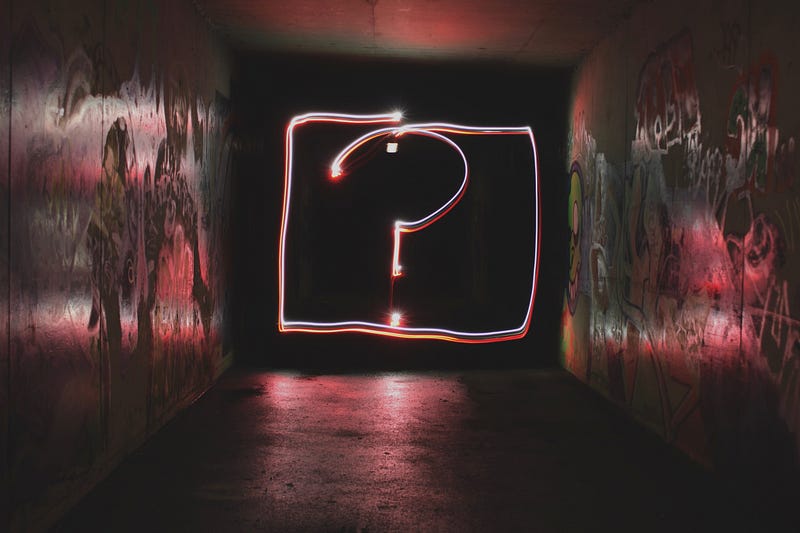Exploring the Effectiveness of Online Dating: Are Couples Happier?
Written on
The Rise of Online Dating
In recent times, I've found myself debating whether to explore dating apps or venture to local venues to meet new people. My choice might resonate with your own experiences.
Dating platforms like Match.com and OKCupid have gained traction since the 1990s, while apps such as Tinder and Bumble have surged in popularity throughout the 2010s. Given the prevalence of smartphones, it's no surprise that a majority of individuals have engaged with dating apps or sites. I vividly recall how thrilling it was to connect with other singles once I got my first smartphone. The instant gratification from swiping and matching became somewhat addictive.
I've experimented with various dating apps—some that present matches sequentially, forcing a choice between 'pass' or 'play', and others that allow browsing multiple profiles at once. Initially, it seemed logical that a broader dating pool would enhance the likelihood of finding a suitable partner. However, many of us have found this assumption to be misleading, leading to the disillusionment behind the saying "there are plenty of fish in the sea."
This leads to a pivotal question: which method is superior for finding a soulmate—swipe-based apps or traditional dating? Instead of leaving this to chance, I turned to research and discovered an intriguing Swiss study that analyzed couples who met through dating applications in Switzerland.

Understanding Public Perception
Before delving into the study's findings, I conducted an engaging poll to capture public opinions on dating apps. Here are five significant insights from the survey:
- Users of dating apps appear less inclined towards long-term commitments, often preferring casual interactions without intentions of marriage or starting a family.
- The nature of dating apps fosters a superficial mindset, making it challenging to cultivate meaningful and lasting connections.
- App users tend to be more selective and indecisive, potentially overlooking essential compatibility indicators like shared values and interests.
- Relationships formed through apps often result in lower satisfaction and happiness levels.
- The convenience of dating apps facilitates connections over long distances, leading to numerous long-distance relationships that may never progress to in-person meetings, fostering unhealthy obsessions.
These observations suggest that dating apps may carry a somewhat negative stigma in the dating landscape.
The Research Study
To minimize selection bias, the Swiss study employed various methodologies to explore the relationship dynamics influenced by app usage. Data was sourced from the 2018 Family and Generations Survey by the Swiss Federal Statistical Office, which utilized phone interviews followed by online or paper questionnaires.
The final analysis included 3,245 individuals in relationships, revealing that 4.12% used dating apps, 7.33% relied on dating websites, and 5.24% utilized alternative online platforms to find partners. The study examined factors such as fertility intentions, educational compatibility, migration backgrounds, and the context of partner meetings in Switzerland.
The Moment of Truth
The findings present a detailed overview of how heterosexual couples in Switzerland are increasingly meeting online. Surprisingly, about 25% of new relationships initiated over the past two years began online, marking a significant shift in dating trends.
The researchers employed an advanced algorithm to categorize the sample into five groups, analyzing differences in relationship patterns. The results indicated that individuals who met through dating apps exhibited a higher propensity to cohabit, marry, and have children within a three-year timeframe. However, comparisons with offline meetings revealed no significant differences in relationship outcomes.
While app users showed greater sexual openness, these differences were largely attributed to factors such as age and gender. The study also found that those using dating apps often have distinct personality traits, making them more outgoing and adventurous compared to non-users.
Although dating apps have gained immense popularity in Switzerland, they do not necessarily expedite the process of finding a compatible partner. However, with dedication and patience, individuals may still find their soulmate through these platforms.
The Future of Dating
The research suggests that dating apps are not a precursor to open relationships, nor do they inherently lead to dissatisfaction in marriages formed through these platforms. Furthermore, these unions tend to exhibit variations in factors like location and educational background.
Future studies could replicate these findings in different countries to examine whether online platforms facilitate connections among diverse immigrant communities.
Conclusion
It is evident that dating apps have transformed the landscape of romantic partnerships. These studies reveal that individuals with time constraints or limited local options may adapt their dating preferences, leading to a broader social and cultural diversity among couples.
As a resident of a rural area where local options are limited, I understand the challenges of seeking intellectually stimulating partners. To enhance my dating experience and avoid unsavory interactions, I prefer to invest in paid dating services rather than relying on free apps like Tinder or Bumble. I wish you success in your quest for love, and may you find the right partner along the way.
This video titled "6 Lessons I've Learned About Online Dating" provides valuable insights into the world of online dating, reflecting on personal experiences and key takeaways.
In this TEDx talk, "The Science of Online Dating | Bella Glanville," the speaker discusses the intricate dynamics of online dating and its impact on modern relationships.